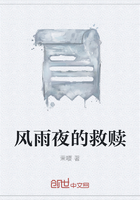There is a letter from him, addressed to Milord Marshal, [George Keith, better known under the name of Milord Marshal, was the eldest son of William Keith, Earl Marshal of Scotland. He was an avowed partisan of the Stuarts, and did not lay down the arms he had taken up in their cause until it became utterly desperate, and drew upon its defenders useless dangers. When they were driven from their country, he renounced it, and took up his residence successively in France, Prussia, Spain, and Italy. The delicious country and climate of Valencia he preferred above any other.
Milord Marshal died in the month of May, 1778. It was he who said to Madame Geoffrin, speaking of his brother, who was field-marshal in the Prussian service, and died on the field of honour, "My brother leaves me the most glorious inheritance" (he had just laid the whole of Bohemia under contribution); "his property does not amount to seventy ducats." A eulogium on Milord Marshal, by D'Alembert, is extant. It is the most cruelly mangled of all his works, by Linguet] ordering him to acquaint a 'superieur' man of my kingdom (D'Alembert)that he has granted him a pension;" and, looking at the letter, he read the following words: "You must know that there is in Paris a man of the greatest merit, whose fortune is not proportionate to his talents and character. I may serve as eyes to the blind goddess, and repair in some measure the injustice, and I beg you to offer on that account. I flatter myself that he will accept this pension because of the pleasure I shall feel in obliging a man who joins beauty of character to the most sublime intellectual talents." The King here stopped, on seeing MM. de Ayen and de Gontaut enter, and then recommenced reading the letter to them, and added, "It was given me by the Minister for Foreign Affairs, to whom it was confided by Milord Marshal, for the purpose of obtaining my permission for this sublime genius to accept the favour. But," said the King, "what do you think is the amount?" Some said six, eight, ten thousand livres. "You have not guessed," said the King; "it is twelve hundred livres."--"For sublime talents," said the Duc d'Ayen, "it is not much. But the philosophers will make Europe resound with this letter, and the King of Prussia will have the pleasure of ****** a great noise at little expense."The Chevalier de Courten,--[The Chevalier de Courten was a Swiss, and a man of talent.]-- who had been in Prussia, came in, and, hearing this story told, said, "I have seen what is much better than that: passing through a village in Prussia, I got out at the posthouse, while I was waiting for horses; and the postmaster, who was a captain in the Prussian service, showed me several letters in Frederick's handwriting, addressed to his uncle, who was a man of rank, promising him to provide for his nephews; the provision he made for this, the eldest of these nephews, who was dreadfully wounded, was the postmastership which he then held." M. de Marigny related this story at Quesnay's, and added, that the man of genius above mentioned was D'Alembert, and that the King had permitted him to accept the pension. He added, that his sister had suggested to the King that he had better give D'Alembert a pension of twice the value, and forbid him to take the King of Prussia's. This advice he would not take, because he looked upon D'Alembert as an infidel. M. de Marigny took a copy of the letter, which he lent me.
A certain nobleman, at one time, affected to cast tender glances on Madame Adelaide. She was wholly unconscious of it; but, as there are Arguses at Court, the King was, of course, told of it, and, indeed, he thought he had perceived it himself. I know that he came into Madame de Pompadour's room one day, in a great passion, and said, "Would you believe that there is a man in my Court insolent enough to dare to raise his eyes to one of my daughters?" Madame had never seen him so exasperated, and this illustrious nobleman was advised to feign a necessity for visiting his estates. He remained there two months.
Madame told me, long after, that she thought that there were no tortures to which the King would not have condemned any man who had seduced one of his daughters. Madame Adelaide, at the time in question, was a charming person, and united infinite grace, and much talent, to a most agreeable face.
A courier brought Madame de Pompadour a letter, on reading which she burst into tears. It contained the intelligence of the battle of Rosbach, which M. de Soubise sent her, with all the details. I heard her say to the Marechal de Belle-Isle, wiping her eyes, "M. de Soubise is inconsolable; he does not try to excuse his conduct, he sees nothing but the disastrous fortune which pursues him."--"M. de Soubise must, however, have many things to urge in his own behalf," said M. de Belle-Isle, "and so I told the King."--"It is very noble in you, Marshal, not to suffer an unfortunate man to be overwhelmed; the public are furious against him, and what has he done to deserve it?"--"There is not a more honourable nor a kinder man in the world. I only fulfil my duty in doing justice to the truth, and to a man for whom I have the most profound esteem. The King will explain to you, Madame, how M. de Soubise was forced to give battle by the Prince of Sage-Hildbourgshausen, whose troops fled first, and carried along the French troops." Madame would have embraced the old Marshal if she had dared, she was so delighted with him.














